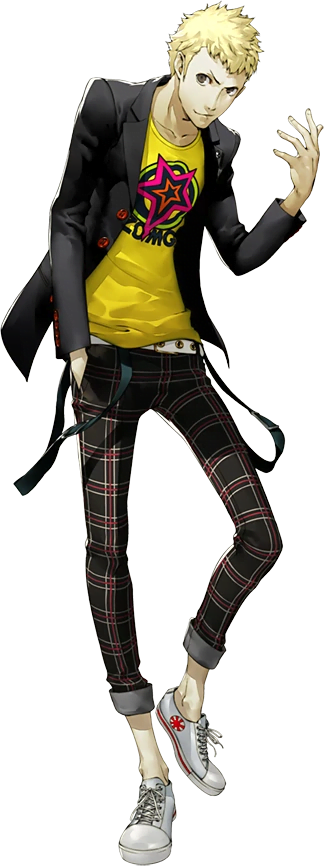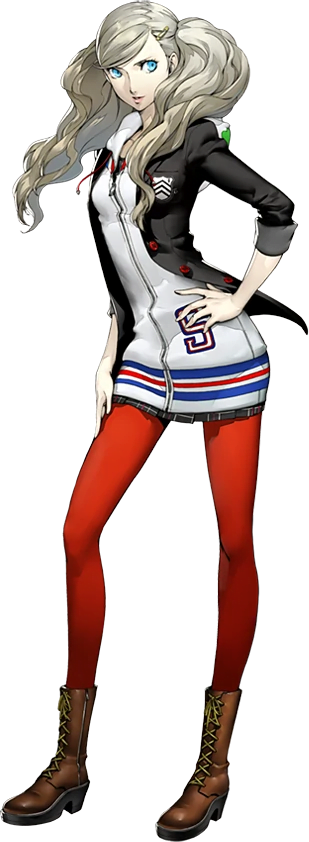A multi-part series that tells my experience with Persona 5 Royal and what it thought me concerning true happiness.
It is fair to assume that you, the reader, want good things to happen to you. Whether that’s a dream job offer, becoming a millionaire, or a celebrity, chances are, you dreamt of something similar.
Although it is nice to dream and fuel our ambitions, we both know that our dreams, at the end of the day, are just that: dreams. I don’t mean that in any pessimistic way, but we tend to settle and find something similar to our comfort zone, rather than that which we first sought after.
At the cost of going through hardships and difficult battles throughout our life, we tend to shed our grandiose goals and settle for something less. A life goal of becoming a doctor can be easily crushed if your grades are not good, so you settle for voluntary work. Or perhaps, a call to explore the world and fall in love with the different cultures isn’t reachable without the proper funds, so you console yourself with a minor trip on the weekends.
But what if we didn’t need to settle? What if you could live the dream you always wanted from the get-go instead of weathering tough times, would you take it? This is what Persona 5 Royal’s (P5R) third semester discusses with its narration, where if you could live the life you want without suffering, doesn’t that mean all your painful past is erased? If that happens, then are we worthy of happiness at all?
Well, to establish the impact of P5R’s touching finale, I would like to explain the premise of the story and the background of each character. Hence, if you know this information feel free to skip to the next part.
Story:

In P5R, you play as Ren Amamiya (who can also be named whatever you want), a teenager who is transferred to Shujin academy, a highschool in Tokyo, after being expelled from his previous highschool for being falsely accused of assaulting an adult.
Through fate and encounters, Ren learns that he can access a world of the cognitive subconscious, where people’s distortions (strong negative emotions) are manifested in a place called “palaces.”
Ren gathers his allies and creates the Phantoms thieves, a group that intrudes palaces searching for the “treasure” to steal, which often translates to the source of where the palace owner\’s trauma or mindset originated from.
If the treasure of a palace is stolen, the palace crumbles and the owner of the palace has a “heart change”, which is to put simply a confession of sins. One of my small critiques is that this heart change phenomenon happens a bit too plainly and fast, where villains change overnight acquiring a black and white morale.
Nonetheless, I like these palaces because they showcase the mindset and emotions of an individual by relatable symbolism and refreshing scenery. Although the game portrays palaces in seven different occurrences (Each one synonymous with a major sin), it offers just enough depth and intrigue to hook you in.
My favorite example has to be Sae Niijima’s palace, which represents the sin of Envy. For context, her world is a Casino where people gamble and test their luck.

Sae Niijima is an attorney that views the court as a casino where the case is a game to gamble. Since attorneys in Japan are notorious for rarely losing a case (99.9% accusation rate in fact), she is ready to take any measure to win including sentencing a false culprit to save face. In this case, Sae rigs the casino so that the house always comes on top.
As mentioned before, these palaces are visually attractive and fascinating. You can expect exploring worlds from something as basic as a medieval castle to a modern recreation of Noah\’s ark as a luxury cruiser ship.
Alas, to steal a palace’s treasure, the phantom thieves rely on the powers of personas which is a representation of the owner’s rebellion and free will. In the persona series, personas are represented as mythological, fictional, or historical icons that fall in line with the owner’s ideology.
For example, Zenkichi Hasegawa’s (a future phantom thieves member in another game) persona is Valjean, who you might recognize as the main character from Victor Hugo\’s Les misérables. Or Carmene, one of the first characters that introduced the concept of femme fatale all the way back in 1845 in Georges Bizet’s opera compositions.
Come to think of it, Persona 5 references a lot of French literature and history, which makes sense given that the MC’s initial persona is Arséne Lupin and lives in Leblanc. Also coffee, lots and lots of coffee…
Ultimately, Persona 5 is the story of a gentleman thief fueled by rebellion, bringing down the evil corrupt adults to pave the way for the aspiring pure ambitious young adults and save the day.
The Phantom Thieves
Throughout the game, Ren makes countless allies with their own hardships and motivations that drive them to join the phantom thieves and fight for the cause. They are the following :
Ryuji Sakamoto:

A track runner and track team leader that was aiming for an athlete college scholarship to help the financial situation of his single mother and ease her burden. However, he shortly gives up this dream after being falsely framed for physically assaulting his PE teacher (Kamoshida), who ends up breaking his knee and rendering it useless for running.
By the way, Kamoshida is an olympics volleyball player who is the PE teacher in Shujin academy. He tries to abolish the track team so he can dedicate all resources to the volleyball team.
So he relies on immoral tactics like blackmailing and manipulation to push Ryuji to give up. At one point, Kamoshida physically abuses Ryuji, but he retaliates in self-defense to which Kamoshida breaks his knee.
Shortly after this incident, the school disbands the track team which makes Ryuji’s teammates mad at him for ruining their hobby and future.
Feeling unfair being the scapegoat, Ryuji joins Ren in an effort to save the track team from Kamoshida’s tyrant reign. Throughout his story, Ryuji learns to be a selfless leader, mend broken bridges, and save his teammates despite their hate for him.
Ann Takamaki:

A model and a student who feels isolated and secluded from everyone due to her European looks (Blond with blue eyes in contrast to black hair and brown eyes in Japan.) She constantly faces harassment and is looked at as a trophy from every male surrounding her.
Ann finds herself the subject of rumors that claim she is having sexual relations with her PE teacher. However, it turns out that Ann was only close with Kamoshida (why the rumors began in the first place) just to secure a spot on the national volleyball team for her only friend, Suzui, whom Kamoshida threatened to remove from the team if Ann did not satisfy him.
Only after Suzui attempts suicide does Ann realize the manipulation of Kamoshida and gains the motivation to rebel against him. After executing her revenge, Ann tries to move on from the past and carve her own road, one without rumors weighing her down.
Yusuke Kitagawa:

An inspiring art student who became an orphan at a very young age. He was adopted by his mentor Madarame and they share a father/son bond.
Yusuke is inspired and charmed by a painting called Sayuri made by Madarame. His life goal is to recreate the beauty achieved by this piece of art.
However, after learning the truth about his mentor and the painting, Yusuke discovers that his mother painted the Sayuri but Madarame killed her and took the credit for himself for fame and glory.
I like Yusuke’s developement because it is one a lot of people could relate to. We often tend to turn a blind eye and defend our family or loved ones because we can’t face the truth that they are flawed.
After this conflict is resolved, Yusuke searches for purpose and questions emotions that stem from losing his mentor and drive, and attempts to reignite his passion for the arts.
Individuals who work in creative fields often face slumps and periods where they question their career and inspirations. Yusuke’s story serves as a reminder that, just like our muscles, we can exhaust our creative talents.
Makoto Niijima:

Younger sister of Sae Niijima (The prosecutor with the casino palace), she is the student council president and the top student of Shujin academy.
Because of her grades and status, Makoto feels like an outcast from her classmates and people around her age, and is often called a teacher’s pet or rumored that she will snitch on students.
When she was a kid, her policeman father died during an investigation and left Makoto and Sae to grow for themselves. As the eldest sister, Sae shouldered all the responsibility to ensure a future for both of them.
To support her older sister, Makoto grew to be obedient and was pressured to perform at the best of her capabilities to whatever role she was given. Like her sister choosing her career path for her after highschool or mindlessly executing Shujin academy principal’s selfish orders.
Inspired by her father, Makoto amateurly investigates an underground mafia scene that financially extorts teenagers, specifically Shujin academy students. Lots of events unfold that force Makoto to shape her own future and become selfish for her own sake.
Needless to say, Makoto’s story struck a chord with me. I find myself relating to being told what to do and afraid of finding any other alternatives. The courage and boldness it takes to cast yourself out of the mold is a tough task to achieve but the most rewarding.
Much like Cartesian doubt, Makoto takes the philosophy of being skeptical of her beliefs to heart. Constantly pondering whether her thoughts and goals are of her own, or are they conditioned by her environment.
Futaba Sakura:

A self proclaimed shut-in that speaks in video game references and internet lingo, Futaba is the average nerdy hacker that spends her days in her room avoiding all social contact, who’s also the creator of an international anonymous vigilante hacking group called Medjed on the side.
She was raised by a single mother, who was a researcher on cognitive pscience (in-game scientific attempt to explain palaces). Her mother loved her dearly until one day she committed suicide right in front of her daughter, mentally and emotionally scarring Futaba.
This led her to develop a victim mindset, believing that she was a selfish daughter and she drove her mother to suicide. The guilt weighed on her forcing her to live her life as a shut-in who wishes to die alone at peace.
Futaba is an interesting character, as she is both a palace owner (with seriously amazing music) and a phantom thief.
I sincerely appreciate how Persona 5 took the time to untangle Futaba’s emotional knots and showcase how she is trying to become a better person. Essentially, after finding revenge and being able to let her mother rest in peace, Futaba’s story sees her attempting to reintegrate into society and learning step by step to become a socially adept person.
As someone who has yet to experience the death of a relative or a close one, I lacked the emotions to feel Futaba’s story. So it speaks wonders how Persona 5 was able to emotionally grasp me and made me feel empathetic all the way throughout her story.
I could only imagine the pain and suffering one must have seeing their parent commit suicide right in front of their eyes. Persona 5 did an amazing job of portraying Futaba, and giving the player the feeling of “I must protect her.”
Haru Okumura:

Daughter of the Okumura food corporation (The in-game version of Mcdonalds), Haru is a shy and reserved character that has a knack for gardening, brewing coffee and using an axe bigger than her in size.
Her father is the president of Okumura foods, who has been facing accusations of overworking employees, disregarding food safety regulations, and using low quality cheap ingredients.
At first, Haru does not mind the accusations about her father, believing that he is misunderstood or framed. However, it is only when her father forces her to an arranged marriage with the son of a powerful parliament member, (I told you the game references French culture a lot) does she wake up and request the phantom thieves to change her father’s heart.
The phantom thieves are successful with their task and fix the heart of her father. Unfortunately, her father is assassinated (via cognitive pscience, much like Futaba’s mother) and Haru joins the team to find her father’s killer.
Following his death, Haru is immediately thrown into a world she knows nothing about. Specifically, she becomes the director of the company and wants to redeem Okumura foods’ reputation.
She couldn’t trust anyone in the company believing they had selfish gains. However, she slowly learns to have faith in people, moves on from her father’s death, and continues her father’s legacy through small urban coffee shops that grow their own coffee and sell handmade products.
Goro Akechi:

Famously known as the “detective prince”, Goro Akechi is a famous teenage detective and assistant to Sae Niijima. He is a bastard son of a famous politician (the same one using cognitive pscience to his advantage) and his mother was murdered shortly after his birth.
He constantly faced uncertainty as a kid, moving from orphanage to orphanage, which made him develop into someone who is hyper-independent. This reflects on his personality as Akechi’s public image is that of a dream prince detective who speaks in perfect language in a subtle tone.
Yet in reality, he is non-tolerant of the phantom thieves and finds the concept of having teammates and saving the day with the power of friendship, as something that is obnoxious and clichéd.
Moreover, Akechi is fueled by the hate of his father. Every action he took in his life was for the sole purpose of usurping him. In the end, Akechi sacrifices himself to save the phantom thieves, and entrusts his dream of revenge up to them.
In all honesty, the detective prince was my second favorite character in the game. Although he joins your party for one dungeon and shortly leaves afterwards, Akechi was a main actor and narrative point of the entire Persona 5 plot.
Regardless of his murders, near-psychotic double-edged behavior (Like this), and obsession of pancakes, Akechi’s story is that of an inferiority complex, of overachieving, processing suppressed emotions, and the difficulty of relying on others.
Sumire Yoshizawa:

A cheerful, upbeat , quirky, and aspiring olympics ballet dancer, Kasumi is the bright sunny aloof personality type who is loveable despite their clumsy mistakes.
Since Kasumi is constantly optimistic and energetic, she often faces periods of negative emotions and depressions for no apparent reasons. Despite these episodes, Sumiro is very dedicated to her dream of becoming a ballet dancer even if she struggles with her routine.
Honestly, for the first two thirds of the game Kasumi is thrown into the back burner and does not have any relevance to the plot.
Skip to the third semester, we learn that Kasumi (Eldest) and Sumire (Youngest) were sisters. However, a car accident occured where Kasumi sacrificed herself to save Sumire. She was devastated with this incident and developed a victim mentality, believing that she should have been the one to die instead of her sister.
Suffering from depression and displaying suicidal behavior, Sumire seeks therapy from a cognitive pscientist called Tae Takemi (very important to this analysis, we will introduce him later on) and through the powers of cognitive pscience, Takemi convinces Sumire that she is Kasumi, making her forget her pain and start a new life as the eldest sister of the Yoshizawa family.
As kids, the two sisters made a promise to make it big as ballet dancers and make their family proud. But since childhood, it was apparent to Sumire that Kasumi was better than her in almost every way.
Those who have siblings will understand how it felt growing up and having your every action compared to your older siblings (who did it better somehow.) Safe to say, Sumire’s story resonated deeply with me.
After her story concludes, Sumire learns to demolish the mindset of constantly comparing herself to her sister, define her own definition of success and worthiness, make peace with the car accident, and strive to her sister’s dream to make her proud.
